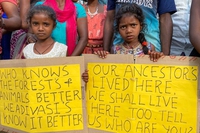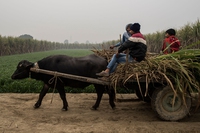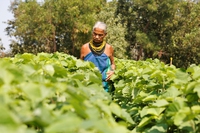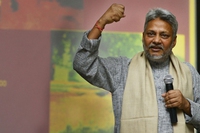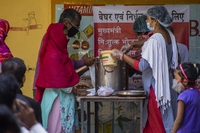
Indians’ solidarity in the face of the Covid-19 crisis
In response to a lack of public services, organisations and individuals are helping citizens weather the devastating Covid-19 crisis in India.
In response to a lack of public services, organisations and individuals are helping citizens weather the devastating Covid-19 crisis in India.
Jenu Kuruba, a honey-collecting indigenous tribe of India, accuses the local government of forcefully evicting them from the forest that is their home.
Corporate globalisation is threatening the food rights of Indian people and the survival of its farmers.
Levels of particulates in New Delhi in 2020 were once again far above safety thresholds, with extremely serious health consequences for its citizens.
India’s GDP could fall by 90 per cent by 2100 if climate finance isn’t improved. As the country tackles Covid, it mustn’t lose sight of sustainability.
Arrested for supporting farmers. The alarming detention of Disha Ravi, a 22-year-old Indian activist at the fore of the Fridays for Future movement.
Tulasi Gowda is known as the goddess or encyclopaedia of the forest for her ability to extract seeds from mother trees and regenerate plant species.
He’s been fighting for solutions to India’s water crisis for a long time. Environmentalist and water defender Rajendra Singh tells us his story.
Beekeeping as an alternative livelihood to stop locals from venturing into Sundarbans, the world’s largest mangrove forest, and encountering tigers.
India responds to environmental groups opposing plans to dilute Environment Impact Assessment (EIA) regulations by shutting their websites down.
